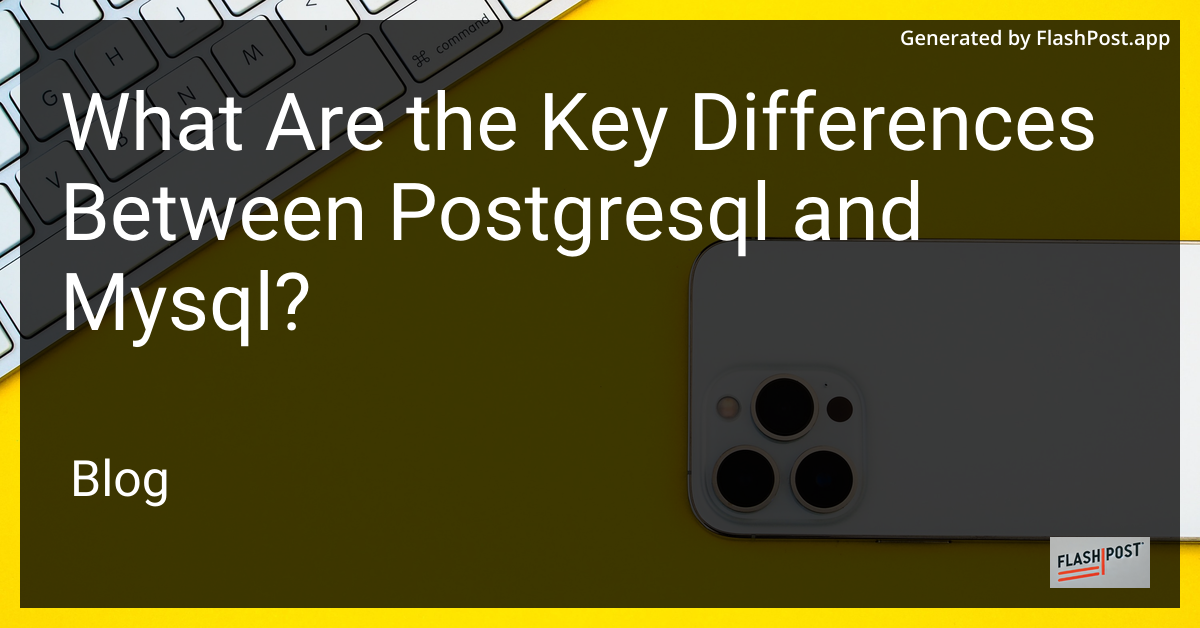
When it comes to choosing a robust, reliable, and efficient relational database management system (RDBMS), PostgreSQL and MySQL are two of the most popular choices among developers. Understanding the key differences between them can help in making an informed decision for your database needs. This article explores various aspects of both PostgreSQL and MySQL, highlighting their unique benefits and features.
PostgreSQL is known for its advanced features and standards compliance, offering complex queries, foreign keys, triggers, updatable views, transactional integrity, and multiversion concurrency control. It supports JSON, XML, and unique data types, making it a preferred choice for applications requiring complex transactions.
On the other hand, MySQL is renowned for its ease of use, speed, and flexibility, making it a ubiquitous choice for web applications, especially those built with PHP. It is particularly popular among startups and is often used in the LAMP stack (Linux, Apache, MySQL, PHP).
While MySQL is generally faster for read-heavy operations, PostgreSQL shines in handling write operations, large datasets, and complex queries. Its focus on reliable transactions makes it a go-to for applications needing ACID compliance.
Both databases have vibrant open source communities. However, PostgreSQL tends to have a more feature-rich ecosystem with extensive documentation and community support. MySQL, being widely used, also enjoys substantial community support and easily accessible resources.
PostgreSQL is released under the PostgreSQL License, an open-source license similar to the MIT License, which places very few restrictions on redistribution. MySQL is open-source but under a dual-license, meaning it has both open-source and commercial versions, the latter being available from Oracle Corporation.
Both databases offer great flexibility in terms of integration with other software tools and languages. For insights on integrating PostgreSQL with PHP, you can read more here.
PostgreSQL offers a variety of tools for database management out-of-the-box. The ecosystem supports additional development tools which enhance productivity, like pgAdmin. You can learn about managing the PostgreSQL database here.
In conclusion, whether you choose PostgreSQL or MySQL depends largely on your specific needs. If you require complex operations, advanced data types, and ACID compliance, PostgreSQL might be the better choice. However, if you prioritize speed, community resources, and simplicity, MySQL could be your ideal solution. For more tips on handling PostgreSQL databases, explore topics on deleting records, executing data imports, or importing data from Excel here.